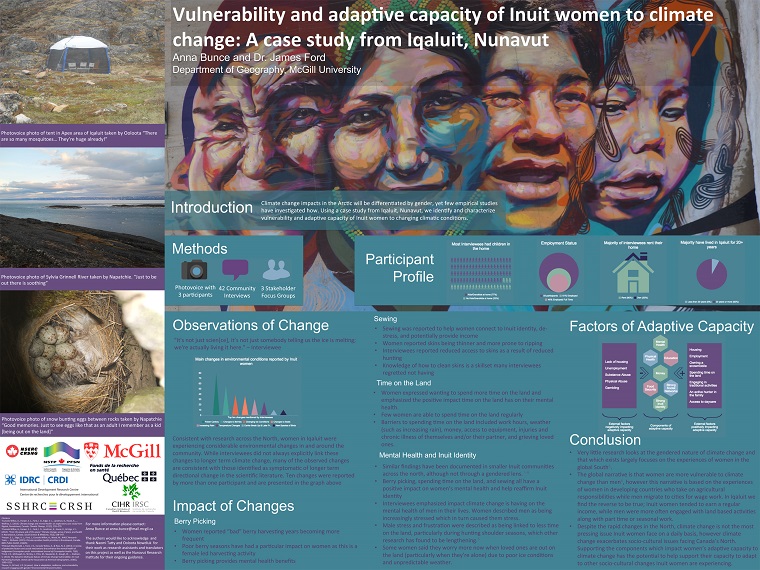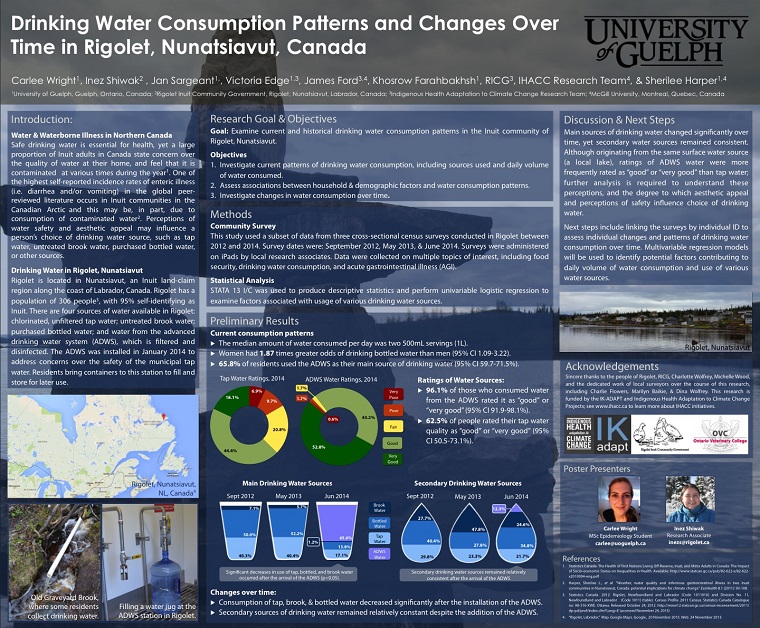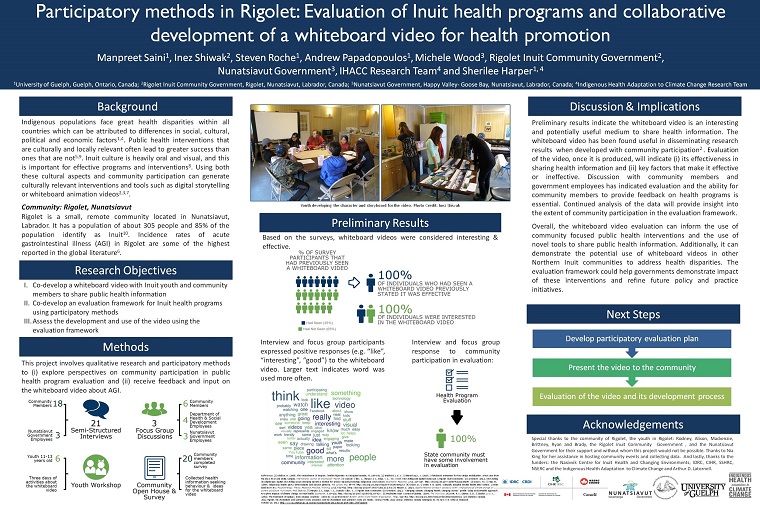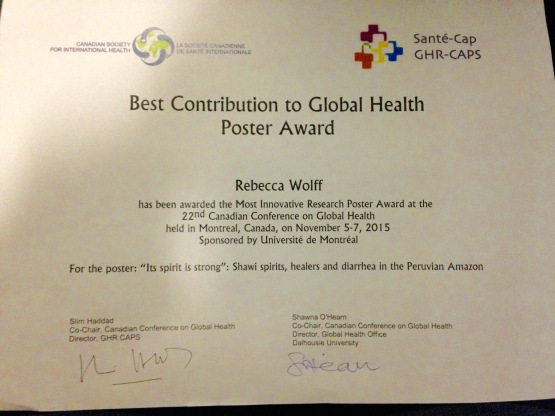
IHACC project team members at ASM2015
 Dr. James Ford
Dr. James FordIHACC project Primary Investigator
Climate Change Adaptation Research Group
Department of Geography, McGill University
Website
 Dr. Sherilee Harper
Dr. Sherilee HarperIHACC project Co-Investigator
EcoHealth Research with Indigenous Communities
Department of Population Medicine, University of Guelph
Website
 Anna Bunce
Anna BunceIHACC project Masters Student
Supervisor: Dr. James Ford
Department of Geography, McGill University
Website
 Kaitlyn Finner
Kaitlyn FinnerIHACC project Masters Student
Supervisor: Dr. James Ford
Department of Geography, McGill University
 Knut Tjensvoll Kitching
Knut Tjensvoll KitchingIHACC project Masters Student
Supervisor: Dr. James Ford
Department of Geography, McGill University
Website
 Carlee Wright
Carlee WrightIHACC project Masters Student
Supervisor: Dr. Sherliee Harper
Department of Population Medicine, University of Guelph
 Manpreet Saini
Manpreet SainiIHACC project Masters Student
Supervisor: Dr. Sherliee Harper
Department of Population Medicine, University of Guelph
IHACC project presentations at ASM2105
Wednesday December 9th 2015 Arctic Wildlife 1 Chair: Dominique Berteaux Room: Oak 10:45 Knut Tjensvoll Kitching Tuktu and Climate Change: Inuit Hunting on Southern Baffin Island Thursday December 10th 2015 Northern Food Security 1 Chair: Sara Statham Room: Marine 11:00 Kaitlyn Finner Food From Here There, From Us and Them; Characterizing the Food System of Rigolet, Nunatsiavut Community Health and Well Being 2 Chair: Mylène Riva Room: Mackenzie 14:30 Manpreet Saini Participatory Methods in Rigolet: Evaluation of Inuit Health Programs and Collaborative Development of a Whiteboard Video for Health Promotion Community Health and Well Being 3 Chair: Shelley Tulloch Room: Mackenzie 15:45 Carlee Wright Drinking Water Consumption Patterns and Changes Over Time in Rigolet, Nunatsiavut Friday December 11th 2015 The Scoop on Northern Poop Chairs: Sherilee Harper, David Goldfarb & Cédric Yansouni Room: Mackenzie 09:30 Sherilee Harper Foodborne, Waterborne, and Zoonotic Enteric Disease: EcoHealth Surveillance for Environmental Health Click here to access the full ArcticNet ASM2015 conference schedule
IHACC project posters at ASM2105









